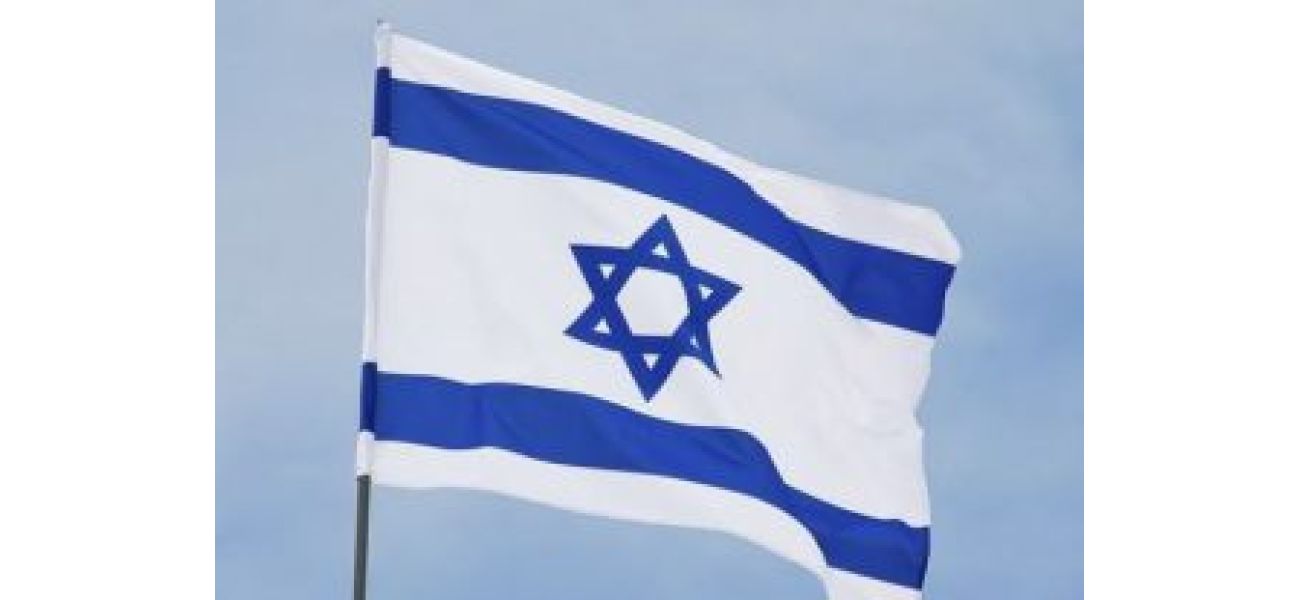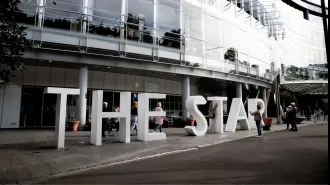Israel stops Gaza assistance in attempt to force Hamas to agree to latest ceasefire plan.
Israel has halted all goods into Gaza and threatened further consequences if Hamas doesn't agree to extend the ceasefire. Hamas accuses Israel of extortion.
March 2nd 2025.

On Sunday, Israel made the decision to halt the entry of all goods and supplies into the Gaza Strip. They also issued a warning to Hamas, stating that there would be "additional consequences" if they did not accept a new proposal to extend the fragile ceasefire that was in place. In response, Hamas accused Israel of trying to disrupt the existing ceasefire agreement and called their actions "cheap extortion" and a "war crime." The truce, which had been in place since January after a year of negotiations, was under threat, but neither side had officially declared it over.
The first phase of the ceasefire, which had included an increase in humanitarian aid, had expired on Saturday. However, the second phase had yet to be negotiated. This phase would involve Hamas releasing the remaining hostages in exchange for an Israeli withdrawal and a lasting ceasefire. Israeli Prime Minister Benjamin Netanyahu reminded his Cabinet that under the current agreements, they could resume fighting if negotiations were not successful. He also stated that the ceasefire would only continue if Hamas kept their end of the deal and released the remaining hostages, emphasizing that "there will be no free lunches." Netanyahu also made it clear that Israel was fully coordinated with the Trump administration on this matter. There was no immediate response from the United States regarding Israel's proposal or their decision to cut off aid.
Since the ceasefire began on January 19, hundreds of aid trucks had been entering Gaza daily. The impact of cutting off this aid was unclear. According to Israel, the new proposal was backed by US Mideast envoy Steve Witkoff. It called for extending the ceasefire through the Muslim holy month of Ramadan and the Jewish holiday of Passover. Under this proposal, Hamas would release half of the remaining hostages immediately, with the rest being released once a permanent ceasefire agreement was reached.
Speaking at a press conference, Foreign Minister Gideon Saar stated that Israel had fulfilled all their commitments until the final day, which was the day before. However, Hamas warned that any attempt to delay or cancel the ceasefire agreement would have "humanitarian consequences" for the hostages. They reiterated that the only way to free them was by implementing the existing deal, which did not include a specific timeline for the release of the remaining captives. Hamas also made it clear that they were willing to release all the hostages at once in the second phase, but only if certain conditions were met, such as the release of more Palestinian prisoners and a permanent ceasefire.
According to an Egyptian official, Hamas and Egypt would not accept a new proposal that did not end the war and involve the return of the remaining hostages. The official also stated that the agreement had called for negotiations over the second phase to begin in February. Mediators were working to resolve the dispute.
The first phase of the ceasefire had been marred by disputes and accusations from both sides of violations. The Israeli military claimed that they had killed dozens of Palestinians who had approached their forces or entered restricted areas. On Sunday, they carried out an airstrike that killed two men who they said were planting an explosive device. However, Gaza's Health Ministry reported that two other people had been killed in separate incidents by Israeli fire. During the first phase, Hamas had also paraded the released hostages, including some who were emaciated, in public events. These actions were deemed cruel and degrading by Israel and the United Nations.
Hamas accused Israel of violating the ceasefire by cutting off aid, as it was supposed to continue during negotiations for the second phase. Israel had imposed a full siege on Gaza at the beginning of the war, only easing it later under pressure from the US. UN agencies and aid groups had criticized Israel for not allowing enough aid into Gaza during the 15 months of war, with the Biden administration repeatedly urging them to do more. Experts had also warned of widespread hunger and the risk of famine in Gaza. The International Criminal Court had accused Israel of using "starvation as a method of warfare" and issued an arrest warrant for Netanyahu last year. This allegation was also a central part of South Africa's case against Israel at the International Court of Justice, where they were accused of genocide. However, Israel has denied these accusations and rejected both court actions, stating that they were biased against them. They also blamed the lack of aid on the UN's inability to distribute it and accused Hamas of diverting aid.
The war began in 2023 when Hamas-led militants attacked southern Israel, killing 1,200 people and taking 251 hostages. Currently, there are 59 hostages being held, with 32 believed to be dead, after most of them were released in two ceasefire agreements. The Israeli offensive has resulted in the deaths of over 48,000 Palestinians, with more than half being women and children. However, it is unclear how many of the dead were combatants. The bombardment and ground operations have left large areas of Gaza in ruins, displacing 90% of the population of 2.3 million Palestinians at the height of the conflict. Most of the remaining population is now dependent on international aid for food and other essentials.
The first phase of the ceasefire, which had included an increase in humanitarian aid, had expired on Saturday. However, the second phase had yet to be negotiated. This phase would involve Hamas releasing the remaining hostages in exchange for an Israeli withdrawal and a lasting ceasefire. Israeli Prime Minister Benjamin Netanyahu reminded his Cabinet that under the current agreements, they could resume fighting if negotiations were not successful. He also stated that the ceasefire would only continue if Hamas kept their end of the deal and released the remaining hostages, emphasizing that "there will be no free lunches." Netanyahu also made it clear that Israel was fully coordinated with the Trump administration on this matter. There was no immediate response from the United States regarding Israel's proposal or their decision to cut off aid.
Since the ceasefire began on January 19, hundreds of aid trucks had been entering Gaza daily. The impact of cutting off this aid was unclear. According to Israel, the new proposal was backed by US Mideast envoy Steve Witkoff. It called for extending the ceasefire through the Muslim holy month of Ramadan and the Jewish holiday of Passover. Under this proposal, Hamas would release half of the remaining hostages immediately, with the rest being released once a permanent ceasefire agreement was reached.
Speaking at a press conference, Foreign Minister Gideon Saar stated that Israel had fulfilled all their commitments until the final day, which was the day before. However, Hamas warned that any attempt to delay or cancel the ceasefire agreement would have "humanitarian consequences" for the hostages. They reiterated that the only way to free them was by implementing the existing deal, which did not include a specific timeline for the release of the remaining captives. Hamas also made it clear that they were willing to release all the hostages at once in the second phase, but only if certain conditions were met, such as the release of more Palestinian prisoners and a permanent ceasefire.
According to an Egyptian official, Hamas and Egypt would not accept a new proposal that did not end the war and involve the return of the remaining hostages. The official also stated that the agreement had called for negotiations over the second phase to begin in February. Mediators were working to resolve the dispute.
The first phase of the ceasefire had been marred by disputes and accusations from both sides of violations. The Israeli military claimed that they had killed dozens of Palestinians who had approached their forces or entered restricted areas. On Sunday, they carried out an airstrike that killed two men who they said were planting an explosive device. However, Gaza's Health Ministry reported that two other people had been killed in separate incidents by Israeli fire. During the first phase, Hamas had also paraded the released hostages, including some who were emaciated, in public events. These actions were deemed cruel and degrading by Israel and the United Nations.
Hamas accused Israel of violating the ceasefire by cutting off aid, as it was supposed to continue during negotiations for the second phase. Israel had imposed a full siege on Gaza at the beginning of the war, only easing it later under pressure from the US. UN agencies and aid groups had criticized Israel for not allowing enough aid into Gaza during the 15 months of war, with the Biden administration repeatedly urging them to do more. Experts had also warned of widespread hunger and the risk of famine in Gaza. The International Criminal Court had accused Israel of using "starvation as a method of warfare" and issued an arrest warrant for Netanyahu last year. This allegation was also a central part of South Africa's case against Israel at the International Court of Justice, where they were accused of genocide. However, Israel has denied these accusations and rejected both court actions, stating that they were biased against them. They also blamed the lack of aid on the UN's inability to distribute it and accused Hamas of diverting aid.
The war began in 2023 when Hamas-led militants attacked southern Israel, killing 1,200 people and taking 251 hostages. Currently, there are 59 hostages being held, with 32 believed to be dead, after most of them were released in two ceasefire agreements. The Israeli offensive has resulted in the deaths of over 48,000 Palestinians, with more than half being women and children. However, it is unclear how many of the dead were combatants. The bombardment and ground operations have left large areas of Gaza in ruins, displacing 90% of the population of 2.3 million Palestinians at the height of the conflict. Most of the remaining population is now dependent on international aid for food and other essentials.
[This article has been trending online recently and has been generated with AI. Your feed is customized.]
[Generative AI is experimental.]
0
0
Submit Comment





